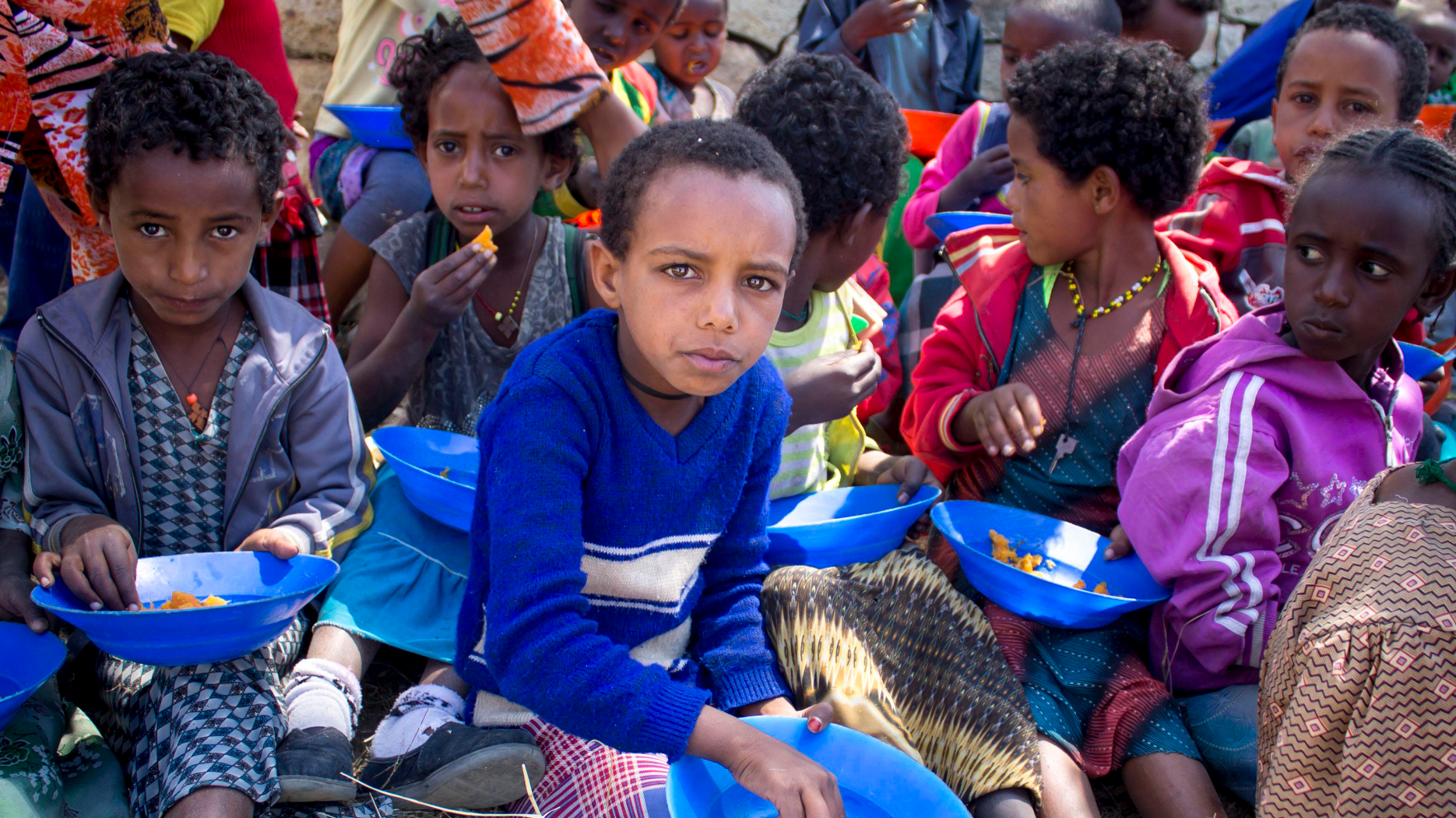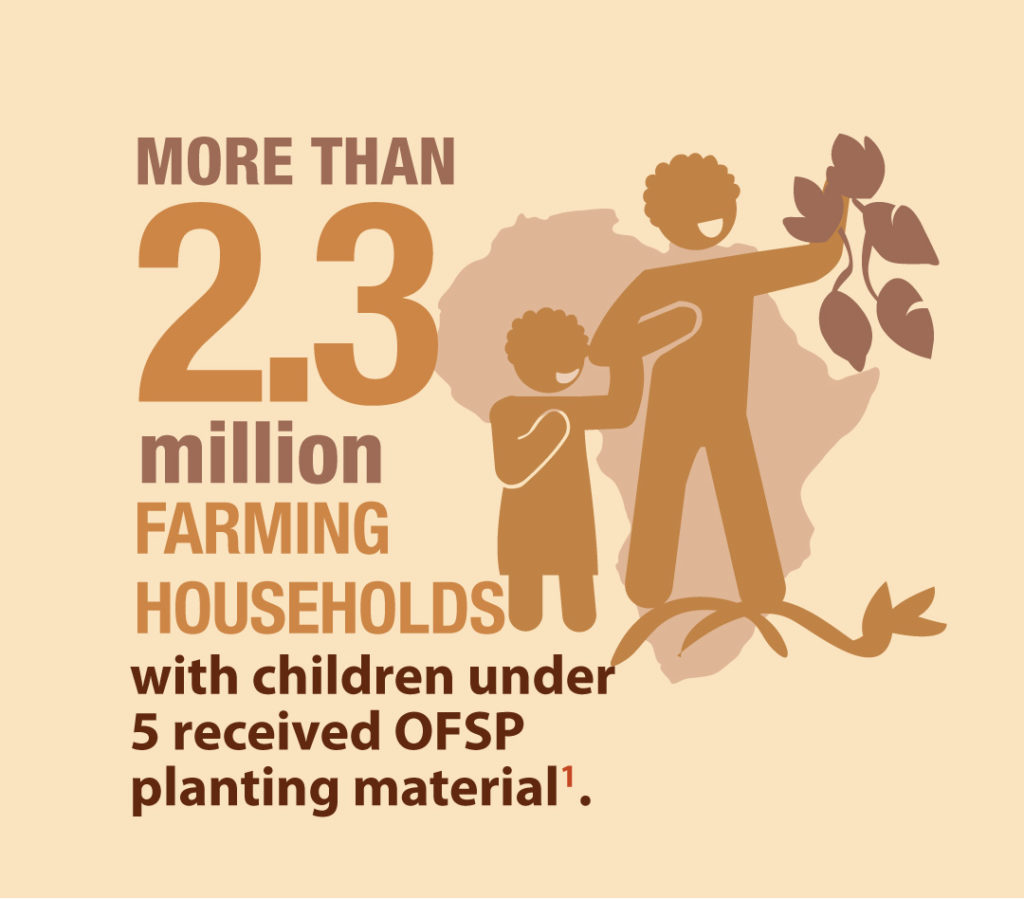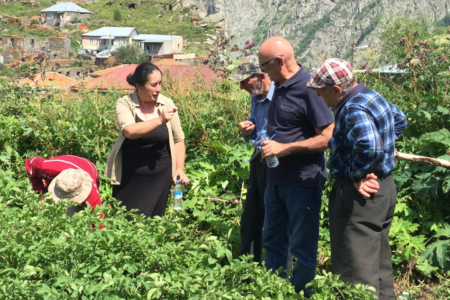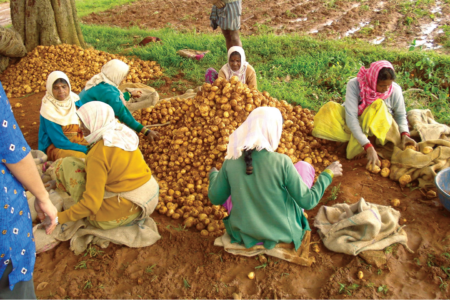
Building on the success of the International Potato Center’s (CIP) nutritious sweetpotato program, vitamin A-rich orange-fleshed sweetpotato will improve the diets of millions more households in Africa and Asia through a program to scale up biofortification.
Background
This intervention builds upon International Potato Center (CIP) research and development in Africa and Asia demonstrating the efficacy of biofortified orange-fleshed sweetpotato (OFSP) as a flagship technology to improve the diets of at least 15 million households with children under 5 in countries with high vitamin A deficiency. The UK Department for International Development has supported this work since 2013 resulting in more than two million households accessing nutritious sweetpotato varieties.
During phase I of the project, CIP and partners helped improve diets through integrated agriculture-nutritionmarketing approaches that combine demand creation activities with supply chain development, while strengthening the capacity of vulnerable communities and partner agriculture and health agencies. The geographical focus was on Kenya, Malawi, Mozambique and Rwanda with additional activities in Bangladesh and Tanzania. In many parts of these countries, OFSP varieties have become rooted in the local farming systems and local diets.
Phase II seeks to scale up the benefits of biofortified sweetpotato more widely and target vulnerable households and communities more explicitly to ensure the benefits of biofortification reach those most in need. This will be achieved through engagement in food systems already of importance to the rural and urban poor—moving beyond smallholder farming to markets for fresh and processed foods and building links with broader commercial and humanitarian initiatives that reach millions of vulnerable families. For additional scale, efficiency and accelerated impacts, CIP partners with the CGIAR HarvestPlus initiative to promote sweetpotato as one of many biofortified staple crops, including cassava, maize, rice and wheat.
Geographically, the work focuses on countries that present opportunities for new commercial partnerships, and reach
vulnerable people affected by protracted crisis, such as in Bangladesh, Ethiopia, Kenya, Nigeria and Uganda. At the same time, it will provide technical programming and knowledge support to additional countries where sweetpotato can make a difference
Objectives
The work seeks to develop and deliver biofortified sweetpotato on a large scale, enabling a further 10 million individuals by 2022 to produce and/or consume OFSP or related products in Africa and Asia. Implemented with HarvestPlus, the work forms part of the CGIAR biofortification strategy for reducing micronutrient deficiencies through enriched staple crops.
The CIP-led intervention is based on the assumption that scalable delivery systems will help to bring the benefits of biofortified sweetpotato to more people, and do so sustainably and cost-effectively. It also recognizes the continued need for developing new varieties to meet changing demands. The multi-country intervention will pursue three outputs to encompass continued sweetpotato development, improved delivery, private-sector engagement and rigorous monitoring:
- developing new biofortified sweetpotato varieties through existing breeding programs;
- supporting the development of sustainable-delivery models for scaling up, including public–private partnerships, and cost-effective delivery models in protracted crisis environments; and
- strengthening the evidence base on the impact of biofortified sweetpotato, ensuring biofortification is included in relevant policies, plans and programs.
Approach
The approach combines activities in breeding, production systems, market development for fresh and processed foods, and rigorous assessments of cost-effectiveness of delivery mechanisms to maximize the value added from biofortification. Activities will focus on:
- facilitating widespread use by national agricultural research systems of improved breeding strategies and tools to accelerate genetic gains in terms of nutrition, marketability and key agronomic traits;
- developing sustainable and scalable delivery systems to reach vulnerable populations at a large scale, through commercial pathways and by strengthening resilience in protracted crisis environments; and
- strengthening the evidence base for the cost-effectiveness of OFSP technologies and communicating this evidence for policy and investment support.
Expected outcomes
At least 12 new biofortified OFSP clones will be evaluated and recommended for national registration in Bangladesh, Ethiopia, Kenya, Nigeria and Uganda. These will be climateresilient (heat, drought and salinity tolerant), diseaseresistant, and high yielding. At least 25 varieties will be exchanged regionally or internationally, and at least six will be recommended for registration in additional countries. Finally, a novel sweetpotato breeding platform will be established in Bangladesh building on experiences in Africa.
To support the development of sustainable delivery models for scaling up biofortified sweetpotato, at least three business models will be developed and tested; and at least one commercially traded, nutritious sweetpotatobased product will be launched targeting low-income consumers in each priority country. Sweetpotato will be integrated and promoted through national resilience and agricultural diversification programs in at least two countries. Partnerships will be built and business models validated for delivering sweetpotato efficiently and sustainably in protracted crisis environments, including through sustainably supplying healthy and affordable processed foods based on sweetpotato puree and other nutritious ingredients.
The evidence base on the impact of biofortified sweetpotato, and the effectiveness and cost-effectiveness of delivery models will be strengthened through independent assessments as part of a broad learning agenda with HarvestPlus. Scientists will also co-convene strategic events to drive learning among key stakeholders and contribute to policy, industry and technical fora.
Key outputs
| Key outputs/ outcomes | Target |
| Improved nutritional status in partner countries in Africa and Asia | At least 10 million resource-poor individuals, of whom at least 6.5 million are women of child-bearing age, adolescent girls and children under 5 |
| Biofortified crop varieties developed and delivered at scale | At least 2 million resource-poor households able to produce and/or consume biofortified crops and/or derived foods |
| Resilient clones evaluated and recommended for national registration in Bangladesh, Ethiopia, Kenya, Nigeria and Uganda | 12 new clones |
| Orange-fleshed sweetpotato varieties exchanged internationally and recommended for registration in additional countries | 25 varieties |
| Delivery models developed and tested for scaling up | 3 delivery models in 5 countries reaching 2 million consumers At least 1 commercially traded, nutritious product established in each country targeting 2 million consumers |
| Cost-effectiveness and effectiveness of selected delivery models assessed and results published | At least 8 peer-reviewed publications Dissemination through at least 12 regional and international science, industry and policy fora |
Contact
Simon Heck
CIP, Kenya
s.heck@cgiar.org
Thanks to our donors





